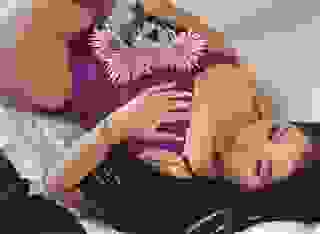- Non-Erotic
- A Small Price To Pay
Note: You can change font size, font face, and turn on dark mode by clicking the "A" icon tab in the Story Info Box.
You can temporarily switch back to a Classic Literotica® experience during our ongoing public Beta testing. Please consider leaving feedback on issues you experience or suggest improvements.
Click hereI dedicate this story to Bostonfictionwriter, who helped me get off of drugs, gave me a place to stay, and found me a job that paid enough to keep me off the streets and out of the shelters. Most of the story you are about to read is true, just the names have been changed. There is no sex in this story, just emotion.
*
There's no better day than Earth Day to organize the homeless and hungry around the Earth and to create and celebrate the new Earth Help Program that acts as a safety net to catch those down on their luck and that fall between the cracks. There aren't enough agencies and resources to help everyone who needs the help and the Earth Help Program was specifically established to fill the gap.
Notice was received that the homeless shelter was closing. It was the only shelter in town feeding 300 homeless people daily and sleeping 50, mostly women with children. Even with all they fed and sheltered on a first come first serve basis, they turned away dozens more. Yet, no one was ever turned away hungry, even if they were only given water, some bread, and some fruit, an apple, banana, and/or orange.
There was only so much physical room without violating the fire code. Many of those who were turned away slept in the alley behind the shelter or under the backdoor arch beneath the protection of the church next door. The roof of the building jutted out to protect those who squatted beneath it against the pouring rain and with plenty of cardboard handy and a tarp to place over them for temporary shelter, there was even an extra blanket or two to share.
The local officials blamed the closing of the shelter on budget cuts and financial shortfalls and because a decrease in the city's tax revenues and services were unable to support the shelter. Typically when making unpleasant and unpopular decisions, even local ones, home town politicians used Washington as the scapegoat to conceal the real reason for the closing of the shelter.
The real reason was that the rich, powerful, and influential people who lived nearby grew weary of seeing homeless people hanging around the streets downtown while waiting for the shelter to open and cueing in line waiting to be served a hot meal. It was unsightly to see all those dirty people whenever those who could afford a night on the town, those who went to the theatre or to the ballet wearing their tuxedos and ball gowns emerged from their chauffeured limousines. Living their fantasy of the good life, they didn't want their evening ruined with a rude reminder of reality of how too many of the rest of the population now lived.
Indeed, times were tough. There was a recession with the highest unemployment and foreclosure rate in more than 30 years, but the people who wanted the shelter closed weren't affected by the poor economy. If the truth was told, now that there were two wars from which to profit, the one in Iraq and the one in Afghanistan, now that Bush released several hundred billions of dollars to banks and insurance companies without properly accounting for the distribution of the money, the rich were making more money than ever before. They were the same people who profited from the crashed stock market, buying instead of selling and picking up bargains like so many crows picking off strips of meat from a dead carcass.
"Hey, can you help out a guy? Can you spare some change?"
The homeless knew which shows were popular and where to lay in wait while watching for the cars to drop off their well-to-do passengers. They rushed up to the vehicles with their squeegees to wash the windshield and obstruct the vehicle until they were paid their dollar toll or until the driver revved the motor and threatened to plow them under if they didn't move. It was easier to pay the dollar than to run the risk of getting their car scratched. It's tragic how the homeless are brutalized for begging a few coins when there are so many fat cats stealing millions from the system without so much as a comment.
Sure, many of those who had it to give, gave their money to programs for the homeless and the hungry, especially around the Thanksgiving and Christmas holidays, but very few of them volunteered their time to pass out food and to get to know the people waiting to be fed and to learn the reasons why they were homeless. They just didn't care. It wasn't their problem. The downtrodden were people, too, albeit homeless, tired, and hungry. Just as we were all unique individuals, we all had stories to tell.
The shelter didn't just feed and give the homeless a bed for the night, they helped homeless women who had been raped get abortions and counseling, women who had been beaten or abused, get help, and those who needed medication, get what they needed to survive while living on the street. They helped more people find jobs than the average employment agency and found more homeless affordable housing than many state agencies. They were there to help the homeless cut through the red tape and confusion of the government agencies that were put in place to specifically help them.
No doubt, those who were mentally ill, alcoholics, and drug addicts earned the admonishment of the public, somewhat, but everyone who was homeless had a bad rap. They all weren't mentally ill, alcoholics, or addicted to drugs or even lazy losers. There is a new breed of homeless people today. People who worked all their lives, lost their job, and were unable to find another one and mothers with children, those are the faces that populate the majority of the beds in the shelters today. Nonetheless, those who have money, jobs, and homes, don't really care who they are that frequent homeless shelters, they just want them gone from their community. They don't want bums pushing shopping carts down their streets and going through their recycling bins in search of cans and bottles.
How would they feel to lose everything, their job, their home, their possessions, and their savings? How would they feel if they couldn't even meet the most basic need of feeding themselves? How would they feel if they didn't have a warm, safe place for them to close their eyes at night? How would they feel to be sick and not able to see a doctor, that is, until they're picked up off the street, unconscious and/or bleeding, and carted off to the emergency ward at the city hospital, typically when it was too late for medical help to save them? How would they feel having to roam the streets all day and all night with no place to go and no comfortable place to even sit without being leered at by those walking by them on the street? How would they feel to be harassed to keep moving and threatened by the police with jail, if they didn't? How would they feel to be ripped from their daily routine of relaxing at home of watch television at night? How would they feel if the best possible alternative was a jail cell or a hospital bed for the night?
How would they feel? Unfortunately, many don't feel anything relating to homelessness until it happens to them and by then, it's too late for them to feel. What someone who is suddenly homeless feels is numbness. They've given up on themselves because they are so low. Now, out of a job, out of money, and out of a home, they are out of the loop and left wandering the street without options. They are viewed as someone who has leprosy. Just walk in their shoes for a day to see how impossibly difficult it is to pick yourself up after you've fallen so low without the help of a shelter and other non-profit agencies, who know what the real difficulties the homeless face daily.
The homeless and hungry didn't need to watch reality television. They live it. Their reality is not just homelessness but also hopelessness and despair. Their reality is wondering how and when they'll get their next meal. Consumed by hunger, tired, dirty, and physically, mentally, and emotionally beaten down, they are a defeated group. Many of them are the walking dead who refuse to fall down.
There's always hope for a better day tomorrow, the one thing that helps them to survive the night, but there are too many to kick them when they are down and there are too few to help lift them up to where they need to be for them to better themselves. Earth Day wasn't just a day to them, it was their reality. Without a bed to rejuvenate their weary bodies, without a pillow to rest their spinning heads, their ears were literally pressed to the ground at night. They knew what it felt like to wander the Earth with no where to go and to have no one care about them.
The hunger that the homeless feels is not just from the lack of food, it's from the constant sickening feeling of desperation and from having their backs constantly up against the wall. The same question runs through their minds like a feed loop, "What will I do now? What will I do now? What will I do now?"
Instead of helping, those responsible for the close of the shelter would rather close their eyes to the problem hoping that it will just go away when the doors of the shelter close. Only, closing the shelter compounds the problem. Now hundreds of tired, hungry, and desperate people are forced out on the street with no where to go and no transportation to get them there, even if they had somewhere else to go. There aren't too many Good Samaritans who will give a ride to a dirty homeless person. Unfortunately, now with the economy the way it is, with foreclosures and unemployment up, the homelessness problem in this country is just a one line addendum after the economic report with more and more people falling through the cracks between middleclass and poverty. They give more press to those collecting unemployment. Yet, what about those people whose unemployment has ended? There is no mention of them.
Because of the inability of the last administration to help those who needed the help the most, the middleclass, there are more homeless, hungry, and unemployed and not less. This country, the greatest country in the world, is rivaling that of third world countries in their lack of concern for people who are down on their luck and/or who have never had the opportunities of advancement of others. It is a sad state of affairs when the richest country in the world, the country that offers to help anyone who is repressed and not free in the world, can't even employ, feed, clothe, give medical care, and house their own citizens. It's a shocking shame, a disgrace, and because the homeless are not organized and don't have a lobby in Congress, the homeless problem does not have the focused attention and outrage of humanity that it should have. The voices of homeless Americans, as unheard as they are unrepresented, are treated worse than the dogs and cats we take off the streets and take in our homes.
The local officials didn't care where these people went, so long as they left and so long as they didn't stay in their town. Only, seriously, where did they think they'd go? With the impending close of shelter looming closer with each passing day, they hoped that the unsightly homeless people would just leave and go to the next town over, even though the shelter the next town over was at maximum capacity, too. Now that the lease was up, the owner of the building that housed the shelter had plans of leasing the space to a gourmet bakery that would give the Starbucks across the street from it a run for its money with their imported coffees served with one of their freshly baked pastries.
"Gather around, please, everyone. Gather around. I have an announcement to make," said Sally the director of the homeless shelter.
Sally donated most of her time and took a paycheck only when there were funds available, which was about once a month when she received a subsidy from the state, grant money from the federal, donations from a few other non-profit agencies, and random donations from people that were necessary for her to continue her program of feeding the hungry and sheltering the homeless. The rest of the time, she lived on her meager social security check and she wasn't too far from being homeless herself. Fortunately, her Mom left her enough life insurance money, when she died, for her to payoff her mortgage. At least, she'd always have a roof over her head.
Now that the shelter was closing, unless she could find a new location, she stood the chance of losing her subsidy and grant monies and it would take forever to reapply to continue to receive the funding that she needed to exist. Even just moving her operations would mean a host of new government mandated inspections and requirements before she could even be licensed to open for business, again. With rules and rolls of red tape, with stacks of paperwork needed to be completed in triplicate for this agency and that department, the government didn't make things easy for a good woman to feed and shelter those who needed a helping hand and those who couldn't wait until some government bureaucrat approved her request for new funding.
It's always been a juggling act to run the shelter, but this time, she feared that once she closed the doors, they'd be closed forever. She just didn't have the strength to start over again. She knew what it took to stretch a dollar. She knew what it meant to do without. She had known hunger. Before there was a shelter in town, she lived on the street, too, when her husband left her and abandoned their three kids for another woman. Back then, with no programs in place for childcare, unable to get a job that paid enough to afford housing, dependent upon family who lived too far away, and friends who turned their backs on her and her children, there was no place for her to go but to live on the street.
A kindhearted family took her in, gave her food to eat, and put a roof over her head, until she could get a job and get back on her feet. Only, the husband of the family that housed and fed them had other ideas. He expected Sally to service him whenever his wife was not around. Tit for tat, he expected sex in return for his generosity.
Back then, before living on the streets took its toll on her face, dimmed her eyes, and erased her smile, she was an attractive woman and he was a fat slob of a man. Once Sally moved in, he made it his habit of coming home for lunch and he expected her to be there to give him whatever he wanted, usually a blowjob with him feeling her tits.
The first time he touched her, she fought him, but he was too strong for her and forced himself on her. She was horrified in the beginning, literally sick to her stomach, but she thought of better things and put her mind in a safer place while allowing him the access to use her body. Except for her husband, no man had touched her in that way. Yet, what choice did she have? If she refused, her kids would go hungry and they'd have no place warm to stay. She did what she had to do when she had to do it and tried her best not to be home alone with him. She serviced him for the sake of her children.
Still, once she was able to find her own place, once she got her life back, his despicable behavior didn't sour her from helping others later in life nor did it make her take advantage of those she helped, as he had done to her. If anything, what she survived in her homelessness and in his sexual abuse made her stronger. Now, she knew first hand what the others had to face being homeless and living on the street. Yet, instead of just taking care of herself, instead of not looking back and trying forget her homeless life; Sally did what most people wouldn't do. She devoted the rest of her life to the problem of feeding the hungry and sheltering the homeless.
"I'm sorry about today's supper, but I ran out of hot dogs," she said struggling with what she had to say next. She wiped her hands on her apron as if it was a worry stone.
"The pancakes were great, Sally. Thank you," said someone from the crowd.
"Yeah, the food was really good," echoed another voice in the crowd of a couple hundred.
"God Bless you," said someone else.
"I asked you all to gather around, not to pray, but for an announcement that I need to make. I mean, of course, we will all say a prayer together later, but I wanted to tell you what is happening that directly will affect you," she said looking from one to another. Many of the faces in the crowd were familiar ones, but there were always new ones. "I received a notice from the landlord that our lease is expiring and that he has no intention of signing a new one," she said looking down at her hands while still wiping them on the apron.
Pensively, she fell into a sad silence. With the crowd still standing before her, she didn't look up at the gathering of homeless visitors that symbolically represented more than a million people she's fed over the past 15 years. Everyone politely waited for her to speak.
"Where will we go," said one homeless man, finally?
"What will we do," said another homeless man?
As if she had summoned the strength to confront her adversity, she addressed the crowd with bitter acrimony.
"It seems that there's a new bakery coming to town and they've already negotiated to lease much of this space, it's big enough and it already has two kitchens," she said wiping a tear from her eye. "Just what this town needs, another fucking coffee shop, as if we don't have enough fast food joints between McDonalds, Dunkin' Donuts, and Starbucks on every street. Now, without an address, I'll lose all the funding that it took me so much time and effort to put in place," she said wiping her eyes again and blowing her nose with a Kleenex. "And without funding, there's no way that I can open another shelter somewhere else. Besides, no one in town will give me a space. I've already asked. I've already tried," she said in a quaking voice. "It's obvious that they don't want us here."
The small room packed with people expecting a meal and a place to sleep were shocked that this, the only place they had to go to keep warm and be relatively safe from harm, was closing. Now where would they go for a meal, to shower, and to sleep? This was more than a shelter to them. It was their home. It was a place where they could get cleaned up enough to apply for work and it was an address to receive a letter, have someone leave a message or accept a telephone call. When they worked, there was always work in the kitchen of hotels washing dishes but minimum wage didn't pay enough money to rent a room, Sally even cashed their meager paychecks for them at her bank. She even bought a coin machine on E-Bay to help roll the change they collected panhandling and exchanged it for dollars at her bank. Now, without this shelter, they were literally back on the street again, but this time without options.
"It appears that there's a concerted effort to displace us," she said with anger in cracking her voice. "I've been served with papers to vacate the premises by the end of next month. The landlord has plans to remodel the building as a strip mall and already has tenants in place, a pizza parlor, a movie rental store, and beauty salon with one more space yet to be rented, which is deemed to be the bakery. He didn't renew the lease to the furniture warehouse upstairs and plans to remodel those floors as luxury apartments."
"They can't do that," said Roger, a homeless man, who was once a successful trader on Wall Street. He lost his job when he was used as the scapegoat for the actions of his boss, who lost millions of dollars of client's investments in a stock fraud and was fired over the trading scandal.
No longer having access to the financial records to prove the stock fraud, he lost his license to trade and was lucky to avoid prison. After using whatever money he had to defend himself and keep himself out of jail, no one would hire him now. He worked at odd jobs, earning whatever he could but never earning enough to keep his car, pay his rent, and put food in his stomach. Other than manual labor, which he didn't have the constitution to do, there were just no jobs, especially for a disgraced Wall Street trader.








